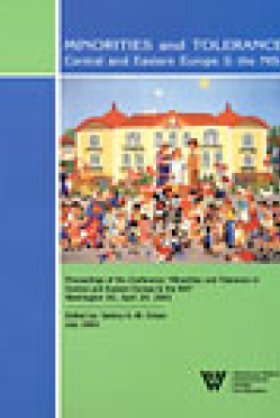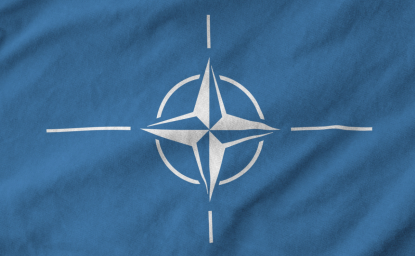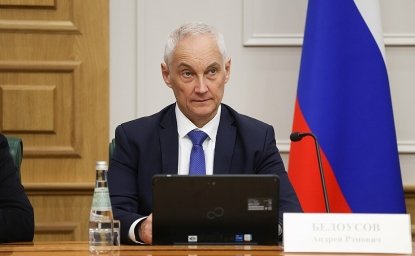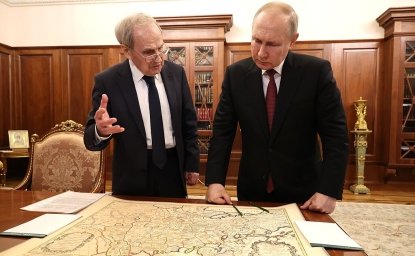"Minorities and Tolerance in Central and Eastern Europe and Russia"


Given the obvious importance of minority and ethnic issues for the stability of the continent, the continuing threat of further disintegration of the region on the basis of minority conflicts, and the still elusive solution to this contentious issue, the East European Studies program (EES), the Kennan Institute, and the Conflict Prevention Project at the Woodrow Wilson Center cosponsored an all day conference on April 24, 2001, to address "Minorities and Tolerance in Central and Eastern Europe and the NIS." Intended to analyze the role of national and shared minorities and their impact on security and stability in the region, the conference highlighted the important roles played by the EU and NATO enlargement processes in promoting tolerance and encouraging strategies to deflect ethnic tensions. The event concluded with a session seeking to propose strategies to avert ethnic hatred by focusing on lessons learned from Chechnya and a broad-brush look at what has worked for international efforts in conflict prevention.
This volume collects highlights of these sessions, seeking to provide useful insights on, and analyses of, the complex issues discussed both to the policy community at large and the general public. It was not the purpose of the conference nor of this publication to outline an exact solution or propose a specific model of action for the resolution of minority and ethnic conflicts in Central and Eastern Europe and the NIS. Such models do not now exist. Rather, the aim was to address the issue in a comprehensive and in-depth fashion, outlining major contributing factors to the problem and pointing out potential influential actors and mechanisms which have at least minimally improved the situation.
CONTENTS
INTRODUCTION (PDF 38KB)
Martin Sletzinger and Sabina Crisen
PART I. LAYING THE GROUNDWORK: A LEGAL OVERVIEW
NATIONALISM AND CONSTITUTIONALISM IN EASTERN EUROPE (PDF 90KB)
Stephen Deets, Post-doctoral Fellow, Walter Havighurst Center for Russian and Post-Soviet Studies at Miami University of Ohio
MINORITIES IN THE FORMER SOVIET UNION: SOME FUNDAMENTAL LEGAL AND POLITICAL ISSUES (PDF 104KB)
Wolfgang Danspeckgruber, Founding Director, Liechtenstein Institute on Self-Determination, lecturer in public and international affairs, Woodrow Wilson School of International Affairs, Princeton University; and Tyler Felgenhauer, MPA, Research Associate and Program Manager, Eurasia with the Liechtenstein Institute on Self-Determination, Princeton University
PART II. CROSS-BORDER ISSUES: DIASPORAS AND SHARED MINORITIES
BETWEEN ETHNICITY AND CITIZENSHIP: EASTERN EUROPE'S CROSS-BORDER MINORITIES (PDF 108KB)
Janusz Bugajski, Director, Eastern Europe Project, Center for Strategic and International Studies (CSIS), Washington D.C.
FRAGMENTS OF EMPIRE AND BALTIC INTEGRATION: LESSONS FOR BUILDING TOLERANCE (PDF 60KB)
Martha Merritt, Assistant Professor, Department of Government, Fellow, Kellogg Institute for International Studies, University of Notre Dame, Indiana
ARMENIA AND RUSSIA IN A COMMON MIGRATION SPACE (PDF 75KB)
Lyudmila Harutyunyan, Chair, Department of Sociology, Yerevan State University, Armenia, President, NGO Armenian Democratic Forum, and Co-director, Center for Regional Integration and Conflict Resolution
PART III. GUARANTEED RIGHTS AND THE IMPACT OF INTERNATIONAL ORGANIZATIONS
THE IMPACT OF THE COUNCIL OF EUROPE, THE UN AND THE OSCE ON RESPECT FOR MINORITY RIGHTS (PDF 96KB)
Erika Schlager, Counsel for International Law, U.S. Commission on Security and Cooperation in Europe (the Helsinki Commission) based in Washington D.C.
THE IMPACT OF THE EU ON HUMAN RIGHTS AND MINORITY RIGHTS: CENTRAL AND EASTERN EUROPE AND THE NEWLY INDEPENDENT STATES (PDF 120KB)
Fraser Cameron, Head, Political and Academic Affairs Section, Delegation of the European Commission to Washington, D.C.
NEW DIASPORAS IN EASTERN EUROPE: LEGAL PROTECTION OF NATIONAL MINORITIES IN HUNGARY, RUSSIA AND UKRAINE (PDF 54KB)
Arthur Helton, Program Director, Peace and Conflict and Senior Fellow, Refugee Studies and Preventive Action, Council on Foreign Relations; and James Weatherill, Masters Degree candidate, Columbia University School of International and Public Affairs
PART IV. THE LESSONS OF ETHNIC CONFLICT: A CASE STUDY
STRATEGIES FOR DEFLECTING ETHNIC HATRED: THE RUSSIA-CHECHNYA CASE (PDF 96KB)
William Smirnov, Professor, Institute of State and Law, Russian Academy of Sciences, Moscow, Russia
APPENDICES
A. SPEAKER BIOGRAPHIES (PDF 21KB)
B. CONFERENCE AGENDA (PDF 15KB)
Author

Global Europe Program
The Global Europe Program is focused on Europe’s capabilities, and how it engages on critical global issues. We investigate European approaches to critical global issues. We examine Europe’s relations with Russia and Eurasia, China and the Indo-Pacific, the Middle East and Africa. Our initiatives include “Ukraine in Europe”—an examination of what it will take to make Ukraine’s European future a reality. But we also examine the role of NATO, the European Union and the OSCE, Europe’s energy security, transatlantic trade disputes, and challenges to democracy. The Global Europe Program’s staff, scholars-in-residence, and Global Fellows participate in seminars, policy study groups, and international conferences to provide analytical recommendations to policy makers and the media. Read more

Explore More
Browse Insights & Analysis
Transatlantic Trade Tensions: The Looming US-EU Showdown

Preparing for the Next Conflict: How NATO is Fortifying Its Defenses

This Is How Words Create War
